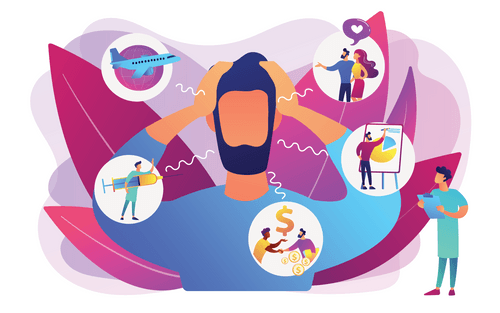Three Mindful Ways to Calm an Anxious Mind - Mindful
Curated from: mindful.org
Ideas, facts & insights covering these topics:
3 ideas
·3.41K reads
48
Explore the World's Best Ideas
Join today and uncover 100+ curated journeys from 50+ topics. Unlock access to our mobile app with extensive features.
Release the critic
Not only is anxiety painful enough, but we often get hit with a second round of self-critical thoughts.
If your judgments make you more anxious, see if you can interrupt your self-critic by dropping into your heart and saying, “May I learn to be kinder to myself.”
595
1.19K reads
Practice tuning into the senses
In moments of moderate to intense anxiety, the 3×3 practice can come in handy.
Drop into 3 of your senses and name 3 things that you notice about them: the things you’re seeing, smelling, tasting, feeling, or hearing. This can help interrupt the automatic catastrophic thinking that’s fuelling the anxiety.
711
1.15K reads
Channel your anxious energy
If your anxiety isn’t severe, you can actually channel that energy into something productive.
For example, if you’re nervously waiting to hear some news, get active—go for a walk, clean, organize, or garden instead.
531
1.06K reads
IDEAS CURATED BY
Elaina Y.'s ideas are part of this journey:
Learn more about health with this collection
How to ask open-ended questions
How to avoid awkward silences
How to show interest in others
Related collections
Similar ideas
2 ideas
5 Ways to Handle Uncertainty
huffpost.com
4 ideas
10 ideas
9 Ways Creatives Can Manage Anxiety
99u.adobe.com
Read & Learn
20x Faster
without
deepstash
with
deepstash
with
deepstash
Personalized microlearning
—
100+ Learning Journeys
—
Access to 200,000+ ideas
—
Access to the mobile app
—
Unlimited idea saving
—
—
Unlimited history
—
—
Unlimited listening to ideas
—
—
Downloading & offline access
—
—
Supercharge your mind with one idea per day
Enter your email and spend 1 minute every day to learn something new.
I agree to receive email updates



